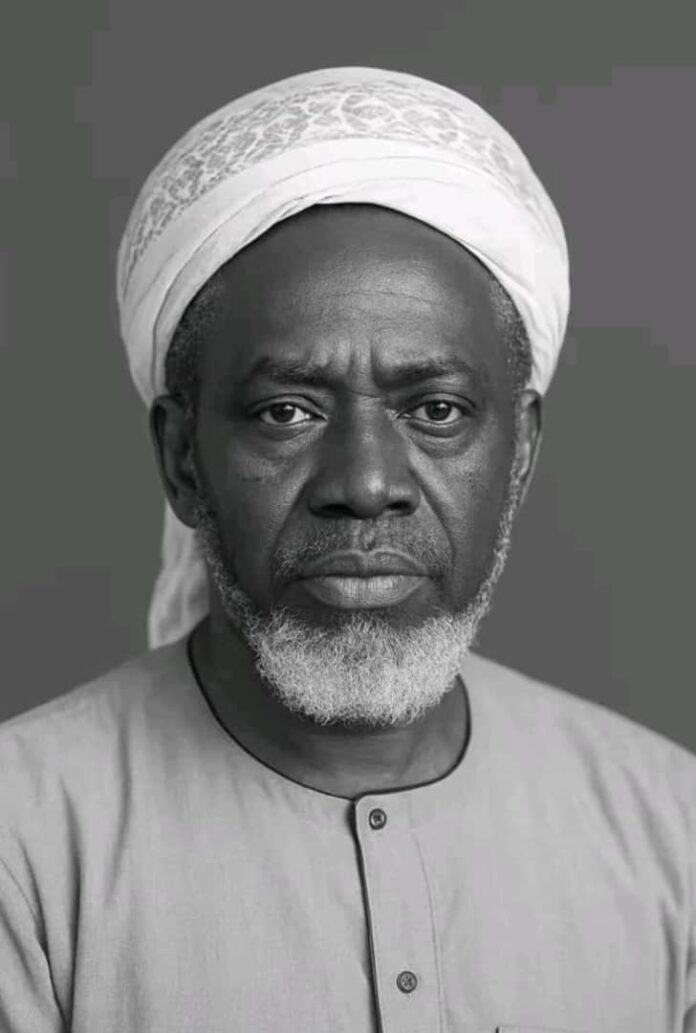By: Abdullahi Inuwa
On 11th September 1992, Nigeria lost one of its most influential religious leaders, a man whose voice carried authority in mosques, classrooms, courtrooms, and even the corridors of power. Sheikh Abubakar Mahmud Gumi passed away exactly 33 years ago, but his legacy as a reformer, teacher, jurist, and fearless advocate of Islamic scholarship continues to echo across generations.
Born in 1924 in Gumi, Sokoto Province (now Zamfara State), young Abubakar grew up in a family deeply rooted in Islamic learning. His early Qur’anic education set the foundation for a lifelong journey dedicated to knowledge. His brilliance soon caught attention, and he was sent to Sudan where he graduated from the prestigious School of Arabic Studies in Khartoum.
Armed with knowledge, discipline, and a commanding presence, Gumi returned to Nigeria at a time when colonial influences and traditional structures were shaping the religious and political landscape of the North.
Sheikh Gumi’s career rose swiftly. He became the Grand Khadi (Chief Judge) of the Northern Region, where he applied Islamic law with a balance of justice and reformist zeal. His judgments earned him admiration for fairness and fearlessness, but it was his sharp intellect and eloquence in public discourse that won him national prominence.
He later served as a lecturer at Ahmadu Bello University, Zaria, where he mentored a new generation of Islamic scholars, many of whom went on to become respected clerics and reformists in their own right.
More than just a jurist, Gumi was a reformer who challenged outdated practices and called for a return to the purity of Islam as outlined in the Qur’an and Sunnah. He was never afraid to speak truth to power, often cautioning leaders against corruption and injustice.
Through his radio preaching and public lectures, Gumi brought Islamic scholarship into the homes of ordinary Nigerians. He addressed issues of morality, governance, and education in a language that resonated with the masses.
Sheikh Gumi was also an accomplished author. His book “Where I Stand” remains a critical text for understanding his vision of Islam and society. He was an international figure too, representing Nigeria in global Islamic forums and building bridges between African and Middle Eastern scholars.
From Sir Ahmadu Bello, the Sardauna of Sokoto, to successive military rulers, Gumi was both an advisor and a critic. Leaders sought his counsel, yet he never shied away from rebuking them when they strayed from justice. His fearless stance earned him admiration but also controversy — proof of his uncompromising principles.
On September 11, 1992, Sheikh Abubakar Gumi answered the call of his Creator at the age of 68. His death sent shockwaves across Nigeria and the Muslim world. Thousands thronged his funeral in Kaduna, and tributes poured in from across the globe.
Three decades later, Gumi’s legacy is not just in the institutions he served or the books he wrote, but in the countless lives he touched. His emphasis on education, truth, and accountability remains relevant in today’s Nigeria, where issues of morality, justice, and governance still dominate public discourse.
As Nigeria reflects on the 33rd anniversary of his passing, Sheikh Gumi is remembered as:
A scholar who combined deep knowledge with clarity of thought.
A judge who stood for fairness and justice.
A teacher who nurtured generations of Islamic leaders.
A reformer who sought to purify faith from distortion and corruption.
A fearless voice who never compromised truth.
From Sokoto to Zaria, from Kaduna to Kano, the name Sheikh Abubakar Gumi evokes respect and reverence. His son, Dr. Ahmad Gumi, continues in his footsteps as an outspoken cleric, ensuring the Gumi legacy endures in Nigeria’s religious and social discourse.
Today, 33 years after his passing, one thing remains certain: Sheikh Abubakar Mahmud Gumi was more than a man of his time — he was a timeless reformer whose influence remains alive in Nigeria’s moral, religious, and political journey.
Sheikh Abubakar Mahmud Gumi (1924 – 1992): Gone but never forgotten.
Abdullahi Inuwa
Social Commentator
ainuwa303@gmail.com




